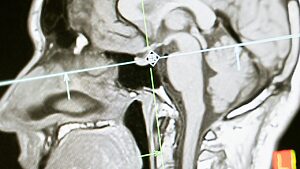Are you struggling with addiction or mental health issues? Have traditional therapies failed to provide the healing and recovery you need? Equine therapy, in conjunction with a traditional treatment plan, may be the answer you’ve been searching for.
This unique form of therapy involves working with horses in a variety of activities, from grooming and feeding to exercising them. In this today’s post, we’ll explore how rehabs are using equine therapy as an effective treatment option for those seeking lasting recovery. So saddle up and get ready to learn more about the world of equine-assisted therapy.
What Is Equine Therapy Exactly?
Equine therapy is a type of experiential therapy that involves horses in the healing process. It is also known as horse-assisted therapy, equine-assisted psychotherapy or simply horse therapy.
During equine therapy sessions, patients interact with horses under the guidance of trained therapists or instructors. These interactions may involve grooming, feeding, or exercising horses. At Texas Recovery Center, patients get one-on-one time with one of these gentle giants. The focus is on building trust and communication between the patient and the horse.
Equine therapy can be used to treat various mental health conditions such as anxiety disorders, depression, PTSD, and addiction. It can also be beneficial for people struggling with behavioral issues such as anger management problems or low self-esteem.
Horses are sensitive animals that react to human emotions and body language in ways that mirror our own responses. This makes them ideal partners for therapeutic work because they provide immediate feedback to patients’ actions without judgment.
Equine therapy sessions take place outdoors in natural settings which allows patients to connect with nature while receiving treatment. The experience can be both calming and transformative for many individuals seeking recovery from trauma or difficult life circumstances.
The Benefits Of Equine Therapy
Equine therapy has been proven to have numerous benefits for individuals struggling with addiction, mental health issues or physical disabilities. Here are some of the key advantages of equine therapy:
It can help reduce stress and anxiety levels. Horses are naturally calming animals and being around them can have a profound effect on an individual’s mood.
Working with horses provides physical exercise that can improve overall health and wellbeing. This type of activity improves coordination, communication, and physical health while also increasing self-confidence.
Working with horses requires communication skills which can be beneficial in developing better relationships with others. Proper communication helps build trust and respect between the participant and their therapist.
The responsibility that comes with caring for a horse teaches participants about accountability and decision-making skills which they can apply in other areas of their life.
Equine therapy is known for its ability to teach emotional regulation skills as well as social awareness. Participants learn how to identify emotions within themselves as well as those displayed by others through reading horse body language.
Equine therapy offers numerous benefits beyond traditional forms of rehabilitation making it a valuable tool in aiding recovery efforts.
Alternatives (Or Additions) To Equine Therapy
While equine therapy can be a fantastic tool for recovery, it’s not the only option available. Many other alternative therapies have proven to be helpful for people struggling with addiction and mental health issues. Here are a few alternatives worth considering:
Art Therapy: For those who might not feel comfortable being around animals or participating in physical activities, art therapy is an excellent alternative. It allows individuals to express themselves through various forms of art such as painting, drawing, and sculpting.
Music Therapy: Similar to art therapy but focused on music instead of visuals, music therapy can help patients relax and process their emotions in a creative way.
Yoga & Meditation: Practicing yoga and meditation has been shown to reduce stress levels and improve overall well-being.
Adventure Therapy: This type of therapy involves outdoor activities such as hiking or ropes courses that challenge individuals physically while also promoting teamwork skills.
Recreational therapy: Utilizing indoor and outdoor amenities such as hiking and basketball, recreational therapy can help patients learn to better connect with themselves, others, and the natural environment.
Remember that everyone’s journey towards healing is unique, so it’s essential to find the treatment plan that works best for you personally.
Think Horse Therapy May Be For You? Call Us Today
Equine therapy is a unique and effective way for individuals to recover from addiction, trauma, and mental health issues. The connection between horses and humans has been shown to provide numerous benefits such as improved communication skills, increased self-awareness, reduced anxiety levels, and more.
While equine therapy may not be the right fit for everyone, it’s important to consider all options and be open minded when seeking recovery. While equine therapy is not a silver bullet for addiction, it can be used as part of a balanced treatment program to help people get, and stay, sober.
If you’re interested in exploring equine therapy as an option for your recovery journey, give us a call. We’re happy to speak with you by phoning (844) 230-5931. By calling, you can speak with our professionals who can guide you through the process of choosing a program that fits your needs.
Remember that recovery is a lifelong journey filled with ups and downs. But with dedication and support from loved ones and professionals alike, healing is possible. Give yourself permission to explore different avenues of healing until you find what works best for you— because at the end of the day, nothing matters more than taking care of yourself both physically and mentally.













